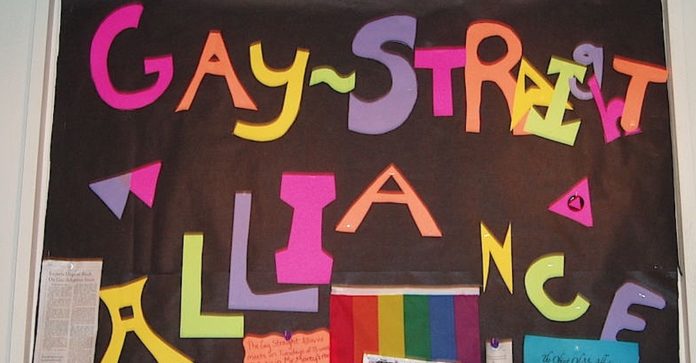[This column appears in the March/April 2022 issue of Boston Spirit magazine. Subscribe for free today.]
Over the past year, we have seen an alarming trend in attempts to censor classroom discussions about race and LGBTQ+ issues, from bans on teaching the history and the present-day reality of systemic racism and other structural inequalities, to books with LGBTQ+ content being pulled out of school libraries.
Between January and September 2021, lawmakers invoked anti-“critical race theory” rhetoric to justify 54 bills across 24 states. At least 11 of these bills have become law in 9 states. Most of these laws target discussions of race and racism in American history. In increasing cases, these laws also include bans on discussions of gender, gender identity, sexual orientation and, in at least one state, disability.
In New Hampshire last summer, after such a bill failed to pass on its own, determined legislators pushed through school censorship provisions in the state’s budget bill. The broad so-called “divisive concepts” law prevents educators from talking about race, gender, gender identity, sexual orientation or disability in the classroom. The law has caused New Hampshire’s teachers to fear classroom discussion on topics like racism and slavery because they are threatened by a serious risk of professional discipline and even lawsuits if they are perceived as running afoul of the law’s restrictions. Most importantly, this law hurts LGBTQ+ students, students of color, students with disabilities and those with intersecting identities by marginalizing their experiences and silencing them in the classroom. Other students are negatively impacted as well because they are deprived of the opportunity to learn critical information that will help them understand and be productive members of a diverse and ever-changing world.
GLAD is partnering with ACLU-NH, ACLU and Disability Rights Center NH, along with Nixon Peabody LLP, Preti Flaherty Beliveau & Pachios LLP, and Shaheen & Gordon, P.A., to challenge the New Hampshire school censorship law in federal court. The suit, brought on behalf of two school administrators specializing in diversity, equity and inclusion as well as the National Education Association NH, argues that the law unconstitutionally chills educators’ voices under the 14th Amendment, and prevents students from having an open and complete dialogue about critical topics.
Setting vague conditions on what educators can say about race, gender, gender identity, sexual orientation and disability harms students with historically marginalized identities and creates a climate of fear that denies all students the freedom to learn, the opportunity to develop critical thinking skills, and the capacity for empathy and appreciation of human differences.
Every day, dedicated teachers and administrators in public schools in New Hampshire and across the US work to help students understand the world around them and prepare them for success as adults in a diverse nation. This includes teaching the full picture of American history—both good and bad—so that students can reconcile its effect on our society in the present. And it includes making room for students with historically marginalized and intersectional identities to see themselves in their textbooks and in classroom discussions.
The importance of visibility and inclusion in schools for LGBTQ+ students can’t be overstated. We know that LGBTQ+ students still face staggering levels of harassment and discrimination, which can have devastating impacts on their physical and mental wellbeing. A 2019 state survey assessing school climate for LGBTQ+ youth in New Hampshire found that up to 63 percent of respondents reported verbal harassment at school because of their actual or perceived LGBTQ+ identity, and up to 22 percent reported physical harassment. Nationally, as reported in the 2019 LGBTQ+ school climate survey, 86 percent of LGBTQ+ students said they have experienced harassment or assault at school, and two in five LGBTQ+ students of color reported harassment or bullying based on race or ethnicity. Such discrimination often leads to missed school days, lower GPAs and lower self-esteem.
Despite these known risks to young people, far right state lawmakers continue to target LGBTQ+ youth. In addition to laws like the one we are challenging in New Hampshire, we are also seeing more and more proposals targeting LGBTQ+ students specifically. A bill introduced in Tennessee this session seeks to ban curricular materials that “promote, normalize, support or address lesbian, gay, bisexual or transgender (LGBT) issues or lifestyles.” A proposal in Florida would ban talking about sexual orientation and gender identity in the classroom. In Texas and other states, we are seeing efforts to ban books with LGBTQ+ characters or themes.
These attacks are coming at a time when schools, educators and students are already struggling with the impact of the COVID pandemic, and on the heels of a record high number of bills targeting LGBQ and especially transgender students in the prior legislative session.
Young people deserve better. Last summer while legislators in New Hampshire were adding a school censorship provision to the state budget, Nevada became the sixth state in the country to pass a law supporting LGBTQ+ curriculum in schools. Imagine what our future could look like if, instead of rendering some students invisible and punishing teachers for helping them understand the full picture of American history, we fostered a climate where LGBTQ+ contributions to history, literature and science were present in the classroom and all students had the freedom to learn, develop empathy and critical thinking skills, and thrive.
If you need information about responding to anti-LGBTQ+ bullying or harassment in school, visit www.GLADAnswers.org for information in New England and www.safeschoolsforall.org/ for help nationwide.
Not a subscriber? Sign up today for a free subscription to Boston Spirit magazine, New England’s premier LGBT magazine. We will send you a copy of Boston Spirit 6 times per year and we never sell/rent our subscriber information. Click HERE to sign up!









